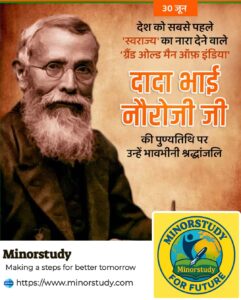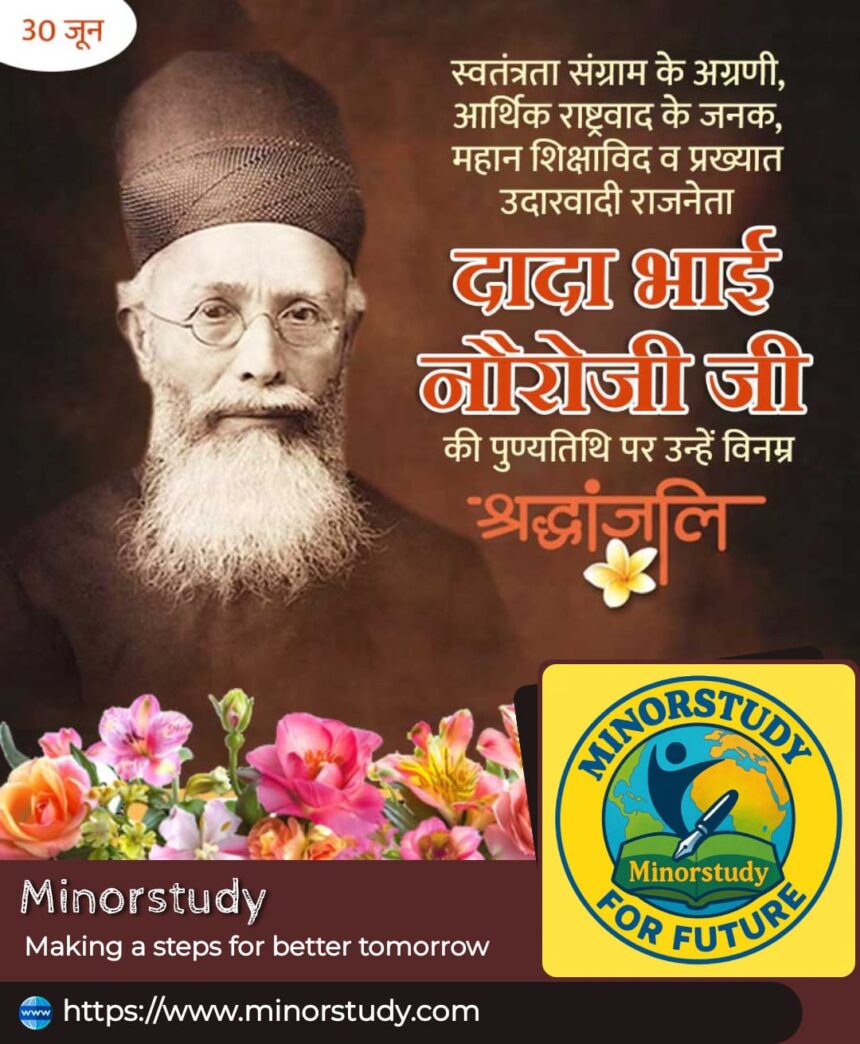Bold Reasons Why Dadabhai Naoroji Legacy Still Powers India’s Freedom Spirit
Dadabhai Naoroji: In the heart of every freedom movement, there lies a voice of reason, courage, and uncompromising truth. Dadabhai Naoroji, often revered as the “Grand Old Man of India”, was that voice during India’s early struggle against colonial rule. His ideas didn’t just stir emotions—they ignited revolutions.
- 📖 Who Was Dadabhai Naoroji?
- 📜 A Brief Timeline of Dadabhai Naoroji Life
- 🧠 7 Bold and Unforgettable Contributions of Dadabhai Naoroji
- 1. 📊 The “Drain Theory” Pioneer
- 2. 🏛️ First Indian in British Parliament
- 3. 📚 Father of Indian Economic Nationalism
- 4. 🤝 Founder of Political Institutions
- 5. 🌐 Champion of Indian Identity in the West
- 6. 🧑🏫 First Indian Professor in British Academia
- 7. 🕊️ A Voice of Peace and Reason
- 📌 Important Facts at a Glance
- ❓ Frequently Asked Questions (FAQs)
- Q1. Why is Dadabhai Naoroji called the “Grand Old Man of India”?
- Q2. What is the “Drain Theory” of Dadabhai Naoroji?
- Q3. What role did Naoroji play in the Indian National Congress?
- Q4. How did he inspire Gandhi?
- 🧭 Observance and Celebrations
- 💡 Why Dadabhai Naoroji Still Matters Today
- 💐 Heartfelt Wishing Messages
- 💬 Dadabhai Naoroji’s Teachings in Daily Life
- 🏁 Conclusion: A Mind That Questioned, A Soul That Led
In this comprehensive, human-friendly tribute, we’ll explore the life, timeline, facts, significance, social impact, and lasting inspiration of Dadabhai Naoroji, one of the first architects of Indian nationalism. This article is over 1200 words long and reflects on why his contribution remains deeply relevant today.
📖 Who Was Dadabhai Naoroji?
Full Name: Dadabhai Naoroji Dordi
Born: 4 September 1825, Mumbai (then Bombay Presidency)
Died: 30 June 1917
Known As: Grand Old Man of India, the First Indian Member of British Parliament
Profession: Educator, Economist, Politician, Social Reformer
📜 A Brief Timeline of Dadabhai Naoroji Life
| Year | Event |
|---|---|
| 1825 | Born into a Parsi Zoroastrian family in Bombay |
| 1855 | Becomes professor of Gujarati at University College, London |
| 1867 | Co-founds East India Association to raise Indian concerns in Britain |
| 1874 | First Indian to be elected to the London School Board |
| 1886, 1893, 1906 | President of Indian National Congress (3 terms) |
| 1892 | Elected as a Liberal Party MP for Finsbury Central – first Indian in British Parliament |
| 1901 | Publishes his famous book “Poverty and Un-British Rule in India” |
| 1917 | Passes away, leaving behind a legacy of intellectual revolution |
🧠 7 Bold and Unforgettable Contributions of Dadabhai Naoroji
1. 📊 The “Drain Theory” Pioneer
Naoroji exposed how Britain was draining wealth from India through colonial exploitation. His “Drain of Wealth” theory changed the way Indians saw British rule—not as civilizing, but as economically parasitic.
💬 “India is being bled to death, and the bleeding must stop.” – Dadabhai Naoroji
2. 🏛️ First Indian in British Parliament
Elected in 1892, Naoroji’s presence in the House of Commons broke racial and colonial barriers. He boldly addressed Indian grievances in a place where they were usually silenced.
3. 📚 Father of Indian Economic Nationalism
Through rigorous data and eloquent speeches, he taught Indians to analyze their own economic plight scientifically. This empowered future leaders like Gokhale, Gandhi, and Nehru.
4. 🤝 Founder of Political Institutions
He laid the foundation for organized Indian political resistance by founding:
East India Association (1867)
London Indian Society
Strong influence over the Indian National Congress (INC)
5. 🌐 Champion of Indian Identity in the West
Naoroji changed the global narrative of India as a “backward colony” to a land of civilized, intelligent, and capable people. He countered stereotypes through his fluent English, scholarly writings, and Parsi pride.
6. 🧑🏫 First Indian Professor in British Academia
He became the first Indian professor at University College London, proving that Indians could hold academic merit on global platforms. This uplifted the intellectual self-respect of colonized Indians.
7. 🕊️ A Voice of Peace and Reason
Unlike many revolutionaries, Naoroji used logic, dialogue, and diplomacy. He believed in constitutional means and mutual respect, influencing Gandhi’s early approach to satyagraha.
📌 Important Facts at a Glance
Language Proficiency: Fluent in Gujarati, Marathi, English, Persian
Religious Belief: Devout Zoroastrian, spiritually guided, ethically driven
Mentored: Gopal Krishna Gokhale, Bal Gangadhar Tilak, Mahatma Gandhi
Known For: Intelligence, honesty, clarity of thought, and deep nationalism
Published Work: Poverty and Un-British Rule in India – a landmark economic critique of British rule
❓ Frequently Asked Questions (FAQs)
Q1. Why is Dadabhai Naoroji called the “Grand Old Man of India”?
Because of his longevity, leadership, and wisdom in the early Indian freedom movement. He was respected by both moderates and extremists alike.
Q2. What is the “Drain Theory” of Dadabhai Naoroji?
It refers to the economic concept that India’s wealth was being siphoned off to Britain, leaving Indians impoverished despite their labor and resources.
Q3. What role did Naoroji play in the Indian National Congress?
He was its President three times and one of the key figures who shaped its initial peaceful and petition-based approach.
Q4. How did he inspire Gandhi?
Gandhi called Naoroji his “mentor and guide”, and followed his principle of truth, non-violence, and political reform through public awareness.

🧭 Observance and Celebrations
Although no official national holiday is declared in his name, Naoroji is celebrated through:
Lectures and seminars in universities
Indian Economics Day discussions
Special programs by the Parsi community
Educational institutions bearing his name
His birthday, 4 September, is often commemorated by thinkers and economic forums.
💡 Why Dadabhai Naoroji Still Matters Today
In an era of economic disparity, his data-based activism is a blueprint for today’s policy makers.
His vision of inclusive nationalism shows how minorities (like Parsis) were central to India’s soul.
As the world debates on equity and justice, Naoroji’s arguments against colonial exploitation offer ethical clarity.
💐 Heartfelt Wishing Messages
“On this day, let us remember the man who dared to speak truth to empire — Dadabhai Naoroji Ji, your ideas light our way.”
“Wishing every Indian the wisdom to read our past like Naoroji did, and the courage to question injustice.”
“Saluting the voice of logic and freedom — may his ideals inspire leaders for generations to come.”
💬 Dadabhai Naoroji’s Teachings in Daily Life
For Youth:
Believe in education and self-reliance.
Stand by truth, facts, and research in your activism.
For Professionals:
Learn to lead with ethics, even in difficult environments.
Uphold your cultural identity while adapting globally.
For Politicians:
Power without honesty and clarity serves no nation.
Diplomacy and dialogue can be stronger than violence.
🏁 Conclusion: A Mind That Questioned, A Soul That Led
Dadabhai Naoroji wasn’t just a political figure — he was a movement in himself. He made economic injustice visible, gave voice to a voiceless nation, and showed that intellect is the greatest weapon against tyranny.
In the noise of modern politics, Naoroji’s silent strength and statistical truth remind us that real change starts with awareness and courage.
Let us not just celebrate him in books, but emulate his vision, conviction, and patriotism in our lives.








